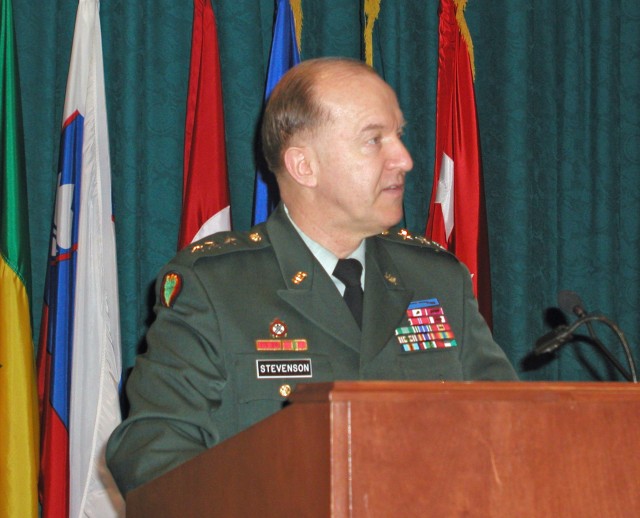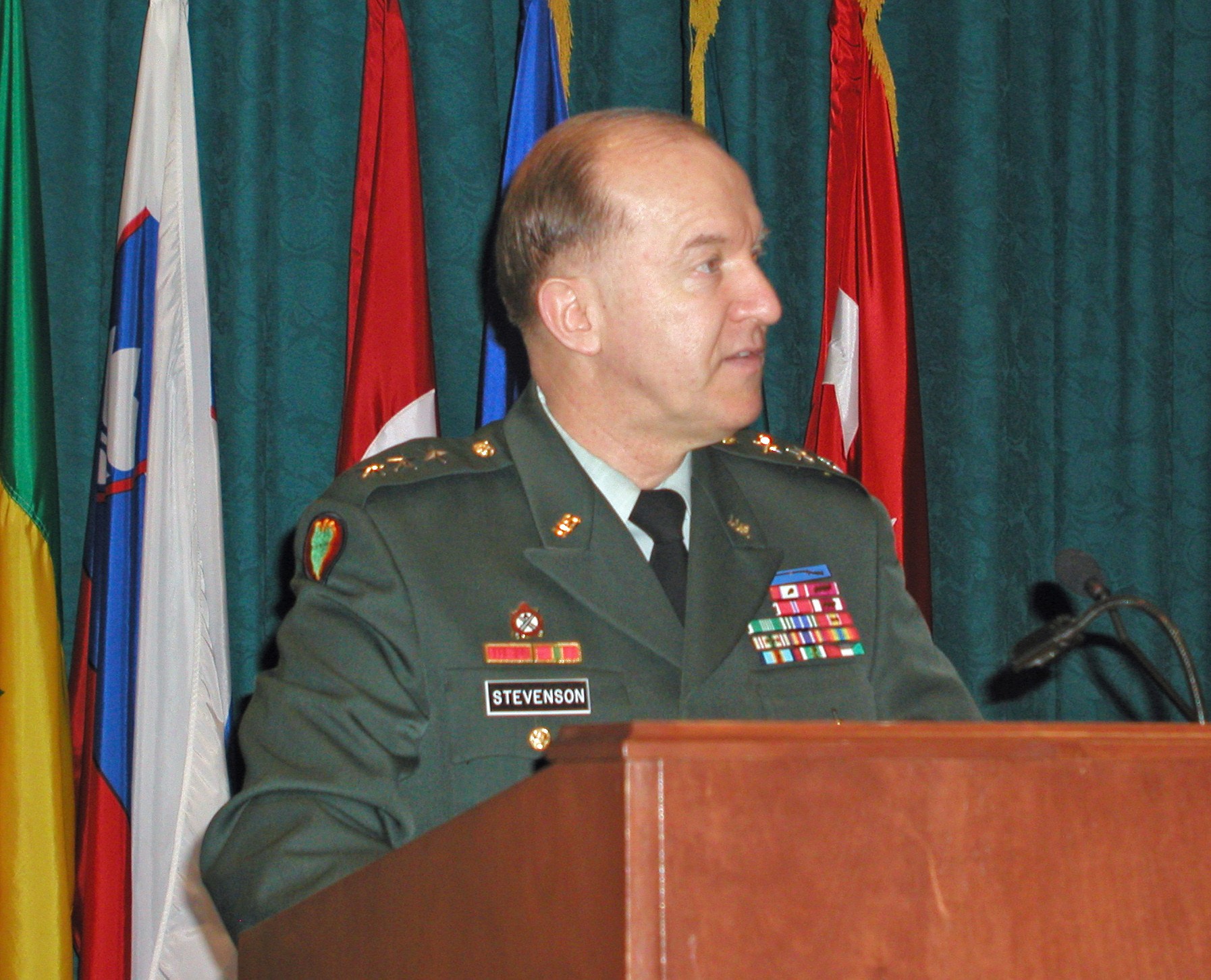FORT LEE, Va. (Army News Service, Dec. 15, 2008) - The Theater Logistics Studies Program, known as T-Log, at Fort Lee, Va., graduated its third group of students Dec. 11, in a small ceremony officiated by Lt. Gen. Mitchell H. Stevenson, deputy chief of staff, G-4.
"You have completed a tough course and accomplished another important milestone in your career," Stevenson told the graduates.
While serving as the commander of the Combined Armed Services Command or CASCOM, Stevenson overhauled the Logistics Executive Development Course to create the new T-Log program, which began in August 2007. The goal of this new course is to develop agile, innovative logisticians who have the decision analysis, logistics knowledge, and skill sets to find solutions for complex operational logistics challenges in this era of persistent conflict, he said.
Students from many backgrounds
Since the program's inception, 99 students have graduated from the program to include officers from the Active Army, Army Reserve, National Guard, and from allied countries' militaries. Department of the Army civilians have also attended the course. In the third class of 41 graduates, 14 were international officers from countries like Saudi Arabia, Turkey, Korea, and Australia.
"I had little experience working with the U.S.," said Lt. Col. Nickolas Faughey, an exchange officer from Australia. "This course helped me understand the way the U.S. military thinks and plans, which will be enormously helpful in my next job at the CASCOM Futures Office."
While still in its infancy, this course has already produced some tremendous results. One former graduate is a planner for the presidential inauguration and another, with no previous fuel experience, is in a key petroleum assignment in Iraq because of the well rounded education received through T-Log.
Of the 41 graduates, eight made the Commandant's list, four of the eight graduated with honors, and the top student was recognized as the Distinguished Graduate.
"This is an amazing course," said Capt. Paul Gebhardt, the class' Distinguished Graduate. "My perspective and understanding of logistics was broadened significantly. We learned how to manage at the operational level as opposed to the tactical level." Gebhardt's next assignment is as the assistant G-4 for the 358th Civil Affairs Brigade at March Air Reserve Base, Calif.
Curriculum of challenges
Lt. Col. Rebecca Freeze, the course's director of instruction, emphasizes critical thinking, problem solving and academic argument.
"It's a highly intellectual course," said Freeze. "We design learning experiences and facilitate the students as they work through those experiences."
The students attending the course come from a variety of logistics backgrounds and hone their skills through study, discussions and roll play. During the 19-week course, the students use hands-on, interactive methods to study joint logistics, operational environments, diplomacy, economics, data analysis and application, contract management, capabilities and determination requirements, materiel and distribution management, and corporate business skills.
"The corporate business skills are key," said Freeze. "You may be a brilliant logistician, but you won't be effective if you can't present your ideas in an understandable way. We give the students plenty of opportunities to practice this."
All of the learned skills culminate in a practical exercise that requires the students to develop a contingency plan to support the movement of forces to conduct Theater Opening, Theater Distribution, and Theater Sustainment operations. They then brief their plans to the Logistics Management College Commandant. The course's final exam is oral, which closely matches a real-life situation of briefing a commanding officer.
The course is not taught exclusively in a classroom. The students take field trips to study logistics history in Gettysburg, Pa.; and the supply chain at Letterkenny Army Depot and New Cumberland Defense Depot, Pa., and Dover Air Force Base, Del. They also hear lectures from Army, Department of Defense and industry logistics leaders on a variety of topics like distribution, pre-positioned stocks, civil support and supply chain management.
The ultimate goal of the program is to produce highly sought-after graduates who are renowned for their operational-level logistics knowledge, planning abilities and critical thinking skills, Stevenson said. He added these are, in other words, tomorrow's Army logistics leadership.
"I hope you head back with fresh ideas for the logistics challenges that our Army faces," said Stevenson, "because it is the talent in this room who must take the U.S. military and that of our allies' countries to the next level."
Two courses are planned for 2009, beginning January 22 and August 3. Information on the course and how to apply can be found at www.almc.army.mil.
"It's wonderful to see the growth and learning that takes place during these 19 weeks," said Freeze. "I'm looking forward to seeing not only the success of our current graduates but the talent of our incoming students."
(Devon Hylander writes for the Army's G-4.)


Social Sharing